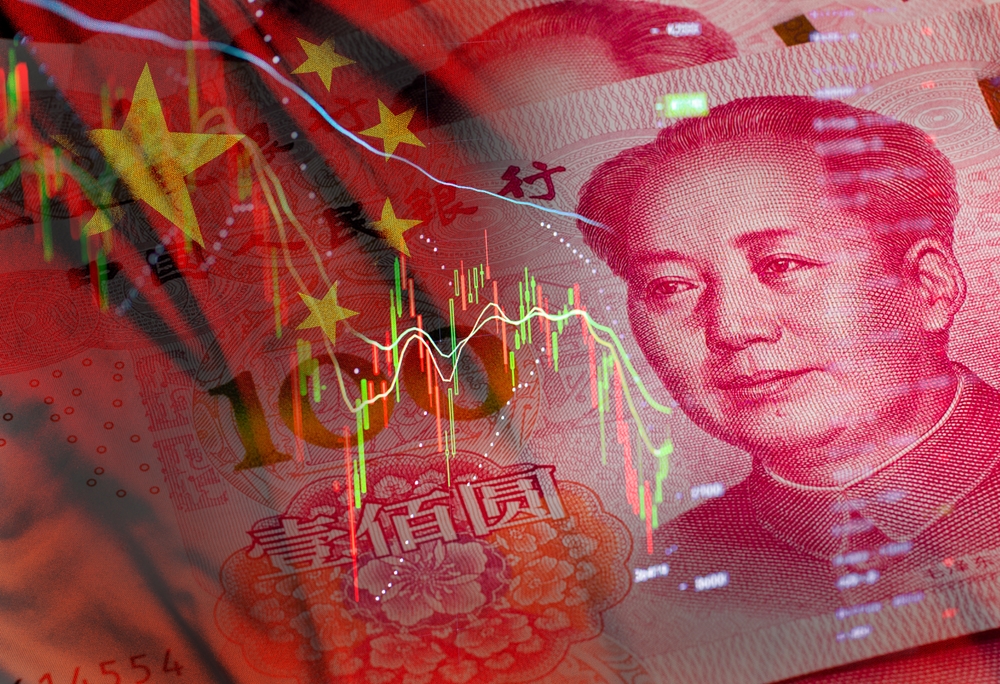China’s old-economy giants, particularly steelmakers and oil refiners, are feeling the pinch as the country’s economic growth slows. In a difficult year, cumulative losses in the steel industry alone have surged to $5 billion (34 billion yuan), with crude oil processors close behind, posting a loss of 32 billion yuan. As China wraps up its third-quarter earnings, the outlook remains bleak for sectors reliant on the old economy, despite recent stimulus measures aimed at bolstering growth. Investors and industry leaders alike are watching closely to see if economic policies can reverse these troubling trends.
Steel and Oil Producers Under Pressure
Chinese steelmakers have been compelled to cut production to cope with declining margins, a direct result of the country’s persistent property market slump. Bankruptcies loom over the industry, with many companies finding it harder to maintain profitability in the face of plummeting demand and mounting losses. Similarly, oil refiners have reduced output as the nation’s demand for fuel weakens, a trend accelerated by the widespread adoption of electric vehicles.
According to recent data from China’s statistics bureau, the steel industry recorded a 34 billion yuan loss over the first nine months of the year, while oil refining saw a loss of 32 billion yuan. These figures place both sectors among the few tracked industries unable to achieve profitability so far in 2024.
Industry Response: Calls for Consolidation and Policy Support
In response to the challenges, China’s main steel industry association announced on Monday its intention to propose policies promoting industry consolidation. This move aims to curtail “cutthroat competition” among firms and foster a more stable market environment. The announcement spurred a surge in steel stocks as investors looked forward to potential reforms to mitigate ongoing issues within the sector.
The oil sector, too, is looking to Beijing’s recent economic stimulus measures for relief. Although Goldman Sachs noted that oil consumption might receive a minor boost, the focus on reducing China’s existing housing stock rather than initiating new construction projects will limit the steel industry’s recovery potential. Overall, Beijing’s measures have inspired cautious optimism, though their effects on raw materials demand remain uncertain.
Broader Commodities Market Impact
The struggles faced by steel and oil refining are part of a broader trend affecting various commodities. Coal mining profits, for example, have dipped by 22% over the year due to oversupply-driven price pressures. Chemical manufacturers, who depend heavily on fossil fuels, have seen a 4% drop in income, reflecting the overall slowdown in industrial profits as reported by China’s statistics bureau for September.
Amid this broader downturn, some sectors have shown resilience. At the recent Shanghai Metals Market conference, optimism around China’s copper market remained strong, with producers planning to expand operations in 2024 and 2025. Though copper demand is expected to rise, the same cannot be said for steel and oil, where current market conditions are less favorable.
Investors Eye Opportunities Amid Challenges
Despite the challenges facing China’s commodities sector, some investors are showing resilience. With the U.S. presidential election on the horizon, they are assessing risks of potential tariff increases yet remain optimistic about Chinese assets, buoyed by hopes for further stimulus measures. This cautious confidence underscores the belief that while specific sectors may struggle, the broader Chinese economy retains potential for recovery, especially if Beijing continues to support industrial growth through targeted interventions.
China’s steel and oil industries find themselves in a difficult position, contending with steep losses, weak demand, and an uncertain economic outlook. Beijing’s stimulus policies may offer some relief, but industry experts are skeptical about any rapid recovery given the nation’s focus on reducing housing inventories rather than new development. While investors continue to hold onto hope for the Chinese economy’s broader potential, for now, it’s clear that the path to recovery for steel and oil remains a challenging one.







